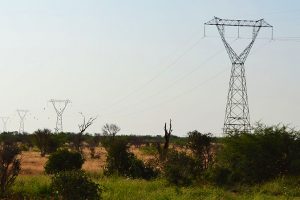Firms, Markets, Labour
Institutional Diagnostic Synthesis
The Institutional Diagnostic synthesis is the culmination of the research undertaken in the four EDI case studies in Bangladesh, Benin, Mozambique and Tanzania. The synthesis also reflects on two historical case studies – Taiwan and South Korea – and describes…
Using Digital Trails to Improve Management and Accountability for Public Service Delivery
Issue: Delays in receiving wage payments reduce poor rural households’ ability to manage economic uncertainty and meet their subsistence needs. This is a particularly dire concern for the 50 million impoverished rural households who rely on the payments from India’s…
Firms, kinship and economic growth in Kyrgyz Republic
Focus of the study Private sector development and the entrepreneurial activity that drives it are central to economic growth. To function well, the private sector requires institutions that clearly define property rights and enforce contracts. In Central Asia, there is…
Quality, contracting, and competition in developing country supply chains
Focus of the study Low product quality – or inability to credibly signal high quality – may be a hindrance to firm growth and exporting in developing countries. In this project, we study how incentives for quality upgrading are passed…
Business-to-business information sharing and the foundations of reputational motives for contract compliance
Focus of the study How do firms develop reputations among potential business partners, and what are the costs or benefits of information sharing in the business-to-business context? Models of reputation and collective enforcement are predicated on a relatively unexamined premise:…
Media Diversity, Religion and Economic Behaviour: An Analysis of Pakistan
Focus of the study How does exposure to foreign media influence religious and economic behaviour in an Islamic society? What are implications for behaviour along gender dimensions? Two effects are possible. On the one hand, exposure to foreign media may…
The Political Economy and Governance of Rural Electrification
Issue: Many developing country governments lack the capacity to directly implement large infrastructure and service delivery projects, instead hiring private contractors to perform public sector responsibilities: at 14.5% of GDP, low-income countries have the highest share of public procurement in…
Networks of power and crony capitalism in Myanmar
This project is ongoing and will be updated as it progresses. Research team Rocco Macchiavello, LSE – Corresponding PI Amit Khandelwal, University of Columbia GSB, Arthur Blouin, University of Toronto, Felix Forster, University of Warwick (PhD), Matthieu Teachout, University of…
A woman’s place is in the production management?
Focus of the study This project focuses on the question of social identity as constraints to women’s career advancement and firm productivity in Bangladesh’s garment sector. The Bangladeshi garment industry was instrumental in expanding women’s employment opportunities in the urban…
Building a marketplace for professional business services in Nigeria
Focus of the study Understanding the role of information, quality signalling, and third-party certification in building a marketplace for professional business services in Nigeria. The main question we address is: “Why don’t more SMEs use the market for professional business…
Ownership changes, management and efficiency in the Rwanda coffee sector
Focus of the study In this project we investigate the relationship between ownership, management and firm performance in the context of the Rwanda coffee sector. The industry is undergoing a significant process of consolidation through which large downstream exporters are…
Community networks and industrial entrepreneurship in India and China
Focus of the study This case study focuses on the role of community networks in early industrialization in pre-Independence India and in contemporary China. Our research is based on panel data collected on individual entrepreneurs and firms, which includes information…
Monitoring the Performance of Agents in Public Service Delivery
Issue: India’s state-run electricity distribution companies (discoms) often lose up to half of the power they are supposed to supply to customers to theft, losses and non-payment. Despite these inefficiencies and corruption, electricity distribution cannot be wholly privatized to improve…
Engaging Citizens to Address Company-Community Conflict at South African Mines
Issue: Despite being a major source of employment, exports, and tax revenues, mining areas are often sites of protests, riots, and other forms of social conflict: between 2010 and 2013, South African police recorded over 10,000 crowd incidents near commercial…
Constructing Compliance: Reducing Tax Evasion Among Market Traders in Ghana
Issue: The taxes and licenses required for traders to operate in local markets are some of the most commonly used state revenue collection instruments in Sub-Saharan Africa. However, businesses frequently evade these levies, choosing to operate in the informal economy….
Improving the Effectiveness of Labor Courts through Information and Conciliation
Issue: Mexican law requires that labor disputes should be adjudicated within three months, but, in practice, the country’s labor courts have several years of backlogged cases. This dysfunctionality creates uncertainty for workers and businesses, limits access to justice, and is…














